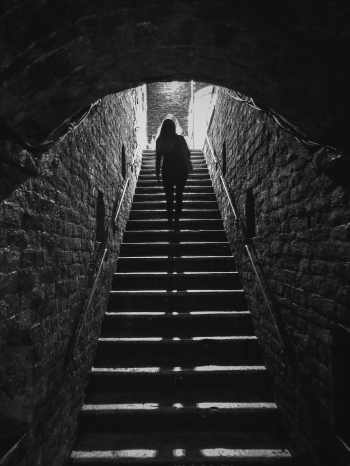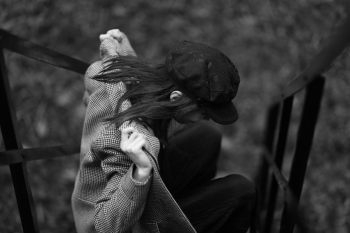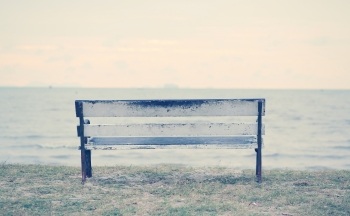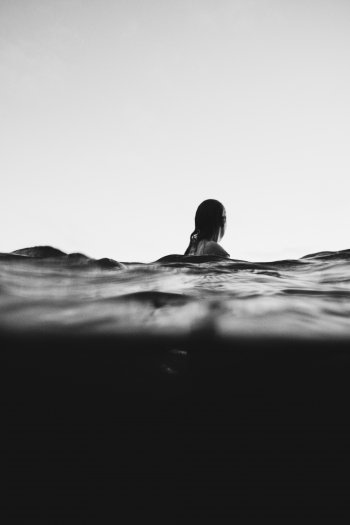
Blog (409)
My hope is to offer encouragement to writers as well as those who simply love to read. You will find eclectic snippets here—news of projects I’m working on, comments regarding books I enjoy, favorite authors, quotes, and reflections regarding my own experiences. I especially like to write about my dreams—those parables in the night seasons. Symbols and metaphors delight and intrigue me. You will find them here.
In the tree cover above me there's a window.~Miranda Cowley Heller (From The Paper Palace)
The morning is unseasonably cooler. The sky is an eclectic composition of grays and pinks, blues and whites. Clouds drift by and the sun blazes through their gauzy covering at intervals. I love the sky. It's an ally who is always there for me. Like my grandmother was.
My grandmother sometimes wore a "mother's ring." I can't remember if there was a stone for each of her eleven children. I do recall as a child when she would grasp my hand. Sometimes the ring would pinch when she squeezed my hand. But I liked the feel of the metal against my skin. I'd take my other hand and trace the tiny stones in her ring with my index finger--little seeds of pale green and topaz, rose and opal. I'd rub my thumb across the blue veins on the top of her small, strong hand. She'd eventually loosen her grip and we'd sit for a while holding hands and watch Jeopardy (she knew a lot of the questions that were really answers) or listen to J. Vernon McGee on the radio.
Lay hold of your freedom, dear heart.~Quote from my book, The Light By Which We See
Things come to me. Like last week. A friend gave me a turquoise and white mug. On its side I read the words, "Go Where You Feel Most Alive." My friend's loving and kind eyes shone when she gave the cup to me. "You can drink your hazelnut coffee in it when you sit down to write." I haven't stopped thinking about the words on the side of the mug. It was an invitation to think about what makes me feel most alive. I thought of the things that don't make me feel alive--too much scrolling on the internet, comparing myself to others who are more beautiful or talented or both, watching life-sapping movies or reading overly dark books, putting pressure on myself to do what I "should" do. People pleasing. "So where do you feel most alive?" I asked myself. I remembered when I began to lay hold of the answer. It came in a dream I had in a hotel room when Giovanni and I traveled to Barcelona, Spain. Room 1614.
I wrote about the experience in my latest book, The Light By Which We See. The cover design was inspired by the encounter in Barcelona.
In the dream, I stopped to look in a mirror and noticed a long hair coming from my eyebrow. I plucked the hair out. But as I looked closer in the mirror, I noticed a minute hole in my skin where the hair had been removed. There was a piece of thread that I could see inside the opening, and I began to pull at it. When I tugged, streams and streams of gauzy fabric began to flow out. I was determined to yank out all the material emerging from that narrow exit. And when the end finally came, I looked down. Mounds of soft, ugly, gray cloth lay at my feet. I observed a faint plaid design in the textile.
Empathy comes from the Greek empatheia--em (into) and pathos (feeling)--a penetration, a kind of travel. It suggests you enter another person's pain as you'd enter another country, through immigration and customs, border crossing by way of query: What grows where you are? What are the laws? What animals graze there?~Leslie Jamison (From The Empathy Exams)
Lizzie Velasquez opened her laptop on a regular day after school. Her mind couldn't fathom the horrific nature of what she discovered. A post declared Lizzie "The Ugliest Woman In The World." Comments ranged from "You should put a bag over your head and put the world out of its misery," to "You just need to go and shoot yourself." The post had over four million views. At that point, LIzzie Valasquez was a teenager living with a genetic disease so baffling and rare, multiple doctors could not diagnose the condition. She was born at 2 lbs 10 oz. The doctors told her parents, "She'll never walk, she'll never talk. She'll be a vegetable." But LIzzie's parents said, "She's ours. We'll take her home and love her." LIzzie grew up to walk and talk and do well in school. The love and unconditional positive regard in her home became foundational to her identity.
It was like trying to dress every morning for the weather in a nation we had never heard of.~Kathryn Schulz (From Lost And Found)
There is a scientific term for a broken heart. According to Florence Williams in her book, Heartbreak, it's called Takotsubo cardiomyopathy. The author states that in 1990 Japanese researchers used new imaging technology to reveal "an unexpected signature of illness." In Takotsubo patients seem to be having a heart attack. However Ms. Williams writes, "What makes these attacks different is that the arteries are free from the typical blockages that cause cardiac failure. Instead, a portion of the left ventricle--the heart's main pumping chamber--wildly under performs, causing it to balloon in compensation. No longer a neat fist, the heart now sprouts a weird distension like an overeager blister. Doctors named the condition Takotsubo after the Japanese lobster trap, which has a narrow neck and bulbous head. In this kind of cardiac event, the heart cells don't necessarily die, but they give up for while...Case literature of Takotsubo patients include recent widows, women whose children or pets just died, and people undergoing other extreme stressors." In 2006 the American Heart Association formally recognized the condition.
Giving up for a while resonates. The heart shouting its imperative amidst the cacophony. "No more."
Some of us come here because we are injured, and need to heal. We suffer from bad backs, fallen arches, shattered dreams, broken hearts, anxiety, melancholia, anhedonia, the usual above ground afflictions...up above there are wildfires, smog alerts, epic droughts, paper jams, teachers' strikes, insurrections, revolutions, blisteringly hot days that never let up.~Julie Otsuka (From The Swimmers)
The above quote is from a book about people who go regularly to a community swimming pool to escape from life stressors, from overthinking, from the weight of their bodies and the weight of the world. When they enter the cool, blue water and begin to swim, it's almost as if their bodies take flight, their spirits rise, now untrammeled by the world's chaotic heaviness.
As I ponder the exultation I've felt when swimming, the freedom in the water, I thought of what we are remembering over these next days--the events of Holy Week. When Jesus gathers His disciples and tells them He chooses to follow through with His mission and go to the cross. His disciples are fearful. No, more than fearful. They are terrified. Confused. They don't want Him to suffer. Then they witness His horrible, ghastly, brutal murder. They are distraught. Traumatized. They defect. Scatter. What will they do now that their beloved leader is dead?




